Need some herbal tips, advice & offers in your life?
Sign up to our newsletter and receive 10% off your first order
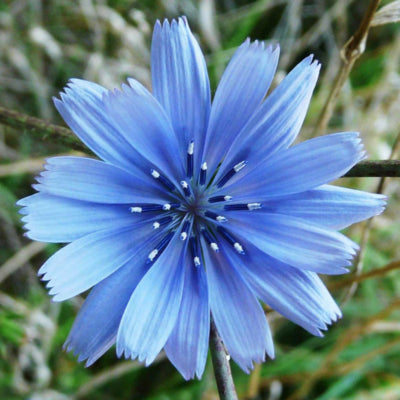
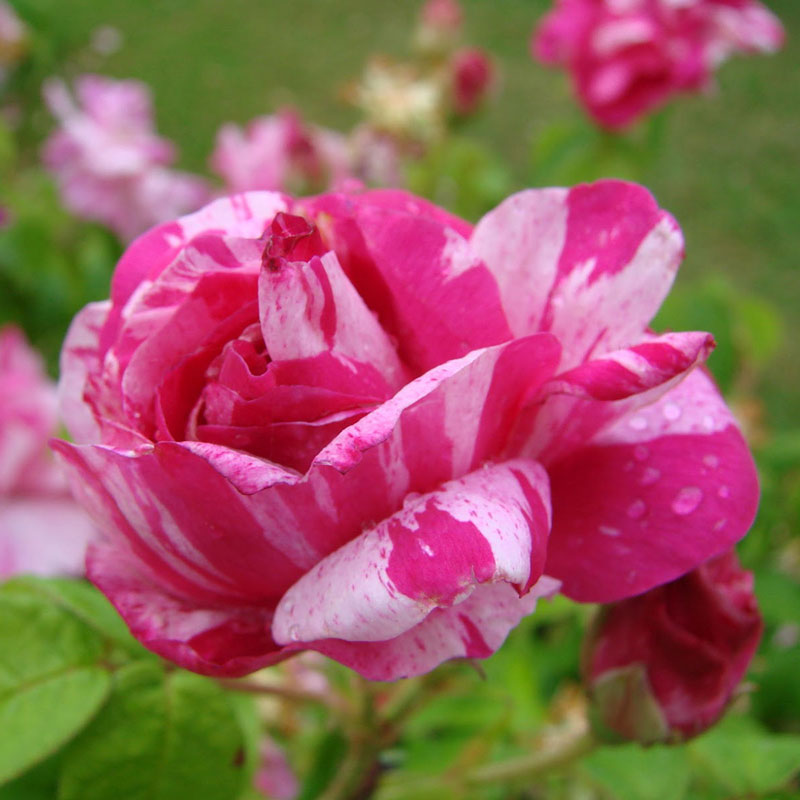
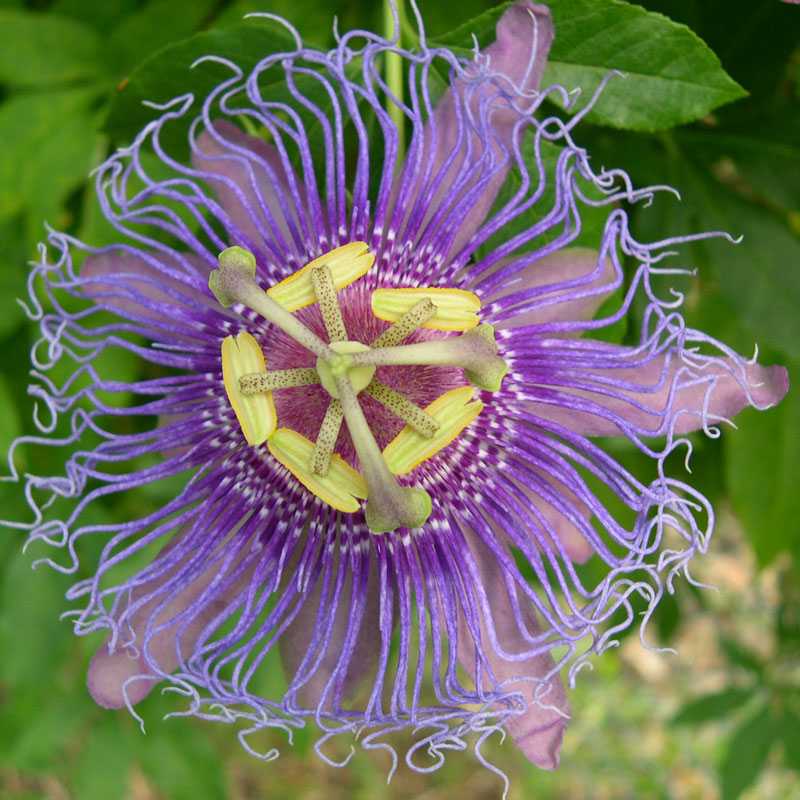
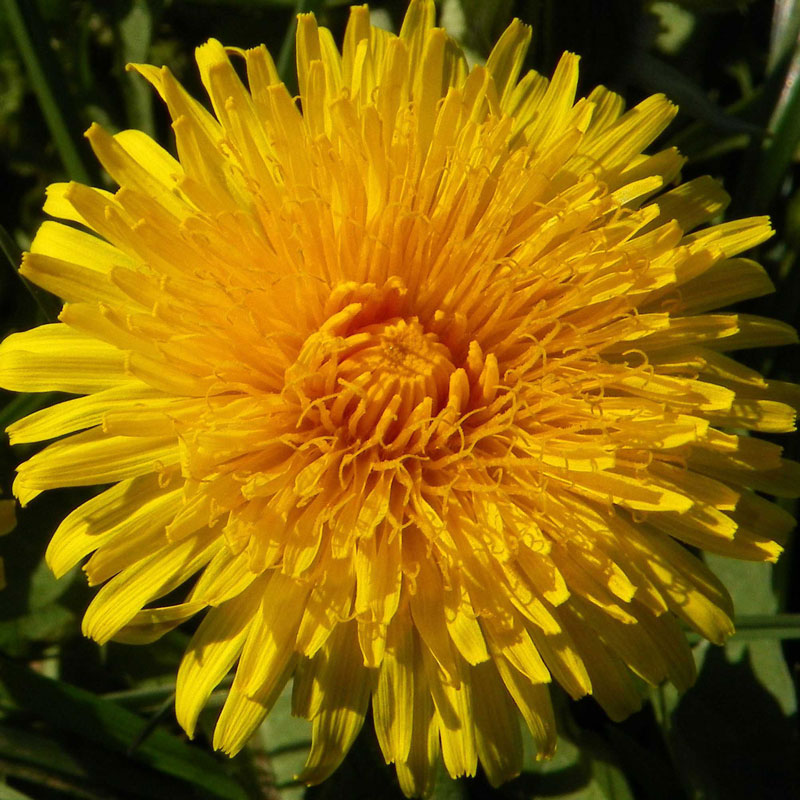
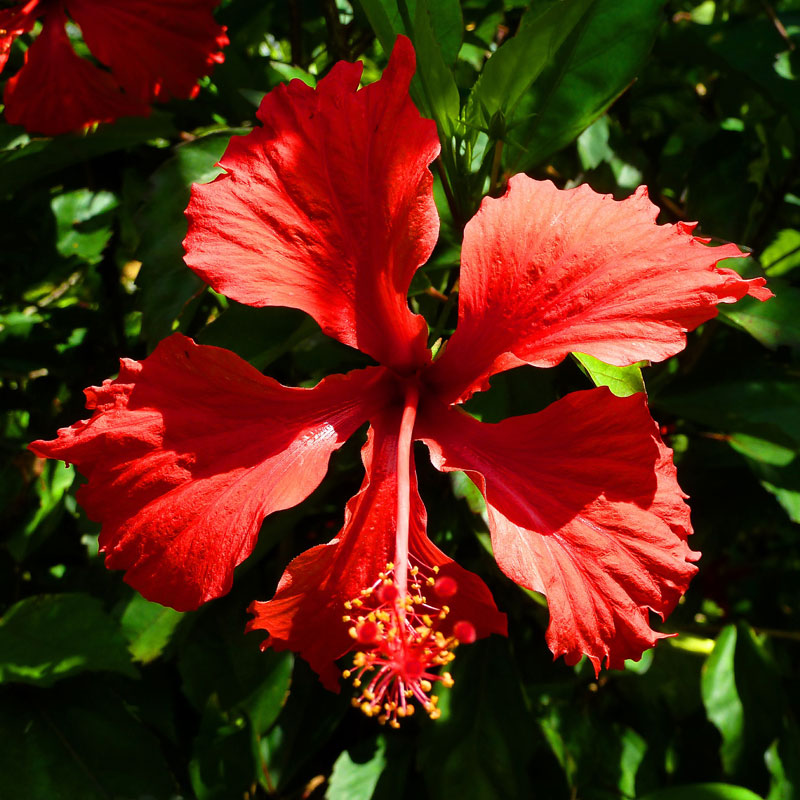
All Heal (Prunella vulgaris): All Heal is astringent, antibacterial, antioxidant and has a long tradition as a wound healing herb. Found in All Heal Salve, Diaper Rash Salve.
Alfalfa (Medicago sativa): Alfalfa is rich in chlorophyll, vitamins, minerals and containing 8 essential enzymes, Alfalfa is an effective aid covering a wide range of diverse conditions. It promotes strong bones, increases vitality, heals wounds and abscesses, gently relieves constipation, helps to strengthen the body after surgery and radiotherapy and as a diuretic it relieves kidney, bladder and prostate disorders. Found in Osteo Tea, Vitality Tea.
Arnica (Arnica Montana): Arnica is an anti-inflammatory and heals wounds and sores by external application. It is used for severe bruising, neuralgia, sprains, rheumatic joints, aches and pains after excessive use in sports and gardening. It is one of the best remedies for external local healing and may be considered a specific when it comes to treatment of bruises and sprains. It helps relief of rheumatic pain, and the pain of inflammation of phlebitis and similar conditions. It may be used wherever there is pain or inflammation on the skin. NOTE: Arnica should not be used internally or on broken skin. Found in Arnica Salve.
Astragalus Root (Astragalus membranaceus): Used in Herbal Medicine to help maintain a healthy immune system. If you are sick a lot or live in fear of “flu season” then you will be grateful for the immune strengthening and supporting power of Astragalus. It strengthens your body’s resistance to disease over time. This root is an ancient Chinese remedy renowned for its ability to reduce the severity and duration of viral infections and, more importantly, to prevent them. Astragalus also has significant levels of antioxidants that prevent free radicals from aging your body sooner than it has to. Research has demonstrated that Astragalus can increase white blood cell counts and levels of interferon in the body, which in turn helps to stimulate those elements of the immune system that swallow up viruses and prevent them from replicating. In the laboratory, Astragalus has shown itself to be not only an effective anti-viral, but also an impressive broad-spectrum antibiotic, inhibiting certain bacteria that can potentially cause severe illness in the body.
Black Cohosh (Cimicifuga racemosa): Used in Herbal Medicine to help relieve premenstrual and menopausal symptoms. Black Cohosh is most valuable for balancing the female reproductive system. It was originally used by the women of the early Algonquin First Nations for ‘women’s’ problems and childbirth. Modern-day herbalists prescribe it for menstrual pain, nervous tension, PMS and menopausal symptoms. Found in Women’s Blend Tea.
Blessed Thistle (Cnicus benedictus): Traditionally used in Herbal Medicine as a digestive tonic and bitter to increase appetite and aid digestion and as an expectorant to help relieve cold symptoms such as excessive mucous. It is excellent for increasing milk production in nursing mothers, relieves painful menstruation and menstrual headaches and can be helpful during problems with menopause, such as heavy bleeding. Found in Mother’s Milk Tea.
Boneset (Eupatorium perfoliatum): Boneset provides relief from influenza. It helps to clear upper respiratory tract mucous congestion and may be used safely for any fever, as a general cleansing agent and speedily relieves bodily aches and pains. It is antispasmodic to the respiratory organs, and helps recovery from “ache all over” influenza, acute pain in the bones, promotes recovery from bronchitis and even malaria. Found in Flu & Cold Relief Tea, Flu & Cold Blend Tincture.
Burdock (Arctium lappa): Traditionally used in Herbal Medicine to help remove accumulated waste product via the kidneys, skin and mucous membranes. Burdock clears out all the waste that’s rounded up by the liver. It helps to stimulate the body’s natural detoxification processes, including sweating and urination. It can also help to ease any achiness in your bones by scrubbing out deposits that have hardened around the joints. Found in Cleansing Tea, Healthy Foundations Tea, Healthy Foundations Blend Tincture.
Catnip (Nepata cataria): Catnip relieves restlessness and induces sleep. Its relaxant effect also influences the digestive tract, relieving tension, colic, flatulence and pain. Catnip is known to relax the uterus and is used to relieve menstrual cramping as well as menstrual and menopausal tension and stress. Its emmenagogue action encourages suppressed periods. Found in Mother’s Milk Tea.
Cayenne (Capsicum annuum): Cayenne is regarded by professional herbalists as the purest, safest herbal stimulant known. It opens up every tissue in the body to an increased flow of blood, producing a natural warmth and relieving pain. It accelerates oxygenation of the cells, regulates blood flow, equalizes and strengthens the heart, arteries, capillaries and nerves. Cayenne is a general tonic and is specific for the circulatory and digestive systems. Found in Stimulating Muscular & Joint Salve.
Chamomile (Matricaria recutita): Traditionally used in Herbal Medicine as a calmative and/or sleep aid. Chamomile has been used throughout the ages to help relieve stomach upset. It helps to relieve inflammatory conditions of the gastrointestinal tract and soothes mild digestive disturbances such as dyspepsia, flatulence, bloating and belching. Chamomile is probably one of the most relaxing and soothing herbs in the Western world. It is used as a sleep aid and to calm anxiety and tension. Found in Headache Tea, Mother’s Milk Tea, Pregnancy Tea, Stress Release Tea, Headache Blend Tincture, Stress Release Blend Tincture, Hemorrhoid Healer Salve, Wild Yam Salve.
Chaste Tree Berries (Vitex agnus-castus): Used in Herbal Medicine to help relieve premenstrual and menopausal symptoms. Chaste Tree helps to stabilize and balance your monthly cycle and relieve premenstrual and menopausal symptoms. Chaste Tree assists with re-balancing the hormones and works to stabilize menstrual cycle irregularities. It helps to relieve PMS symptoms and symptoms associated with menopause, such as hot flashes and night sweats. It is a tonic for the entire female reproductive system. It’s essential to take Chaste Tree for at least 3 months in order to experience its full benefits. Found in Wild Yam Salve.
Chickweed (Stellaria media): Chickweed is soothing, emollient, healing, anti-itch, cooling and provides relief from irritation. Most commonly Chickweed is used externally as a remedy for cuts, wounds and especially for itching and irritation.
Catnip (Nepata cataria): Catnip relieves restlessness and induces sleep. Its relaxant effect also influences the digestive tract, relieving tension, colic, flatulence and pain. Catnip is known to relax the uterus and is used to relieve menstrual cramping as well as menstrual and menopausal tension and stress. Its emmenagogue action encourages suppressed periods. Found in Mother’s Milk Tea.
Cayenne (Capsicum annuum): Cayenne is regarded by professional herbalists as the purest, safest herbal stimulant known. It opens up every tissue in the body to an increased flow of blood, producing a natural warmth and relieving pain. It accelerates oxygenation of the cells, regulates blood flow, equalizes and strengthens the heart, arteries, capillaries and nerves. Cayenne is a general tonic and is specific for the circulatory and digestive systems. Found in Stimulating Muscular & Joint Salve.
Clivers (Galium aperine): Clivers is useful for enlarged lymph nodes and for dry skin disorders. It may be used for urinary disorders and is a cleansing drink for malignant conditions. Found in Diet Tea
Comfrey (Symphytum officinale): Comfrey promotes rapid healing as a result of its properties which accelerate cell division. It is an excellent aid in soothing chronic varicose ulcerations and veins, irritating sores that refuse to heal, minor wounds, bruising and skin cancers. Comfrey restores PH balance, guards against and reduces scar tissue developing incorrectly, treats dry skin and strengthens and softens skin. Comfrey is also known to help eliminate toxic minerals, neutralizing free radicals created by toxic substances entering the body. NOTE: Comfrey should not be used internally. Found in All Heal Salve, Diaper Rash Salve, Distressed Skin Salve and Distressed Skin Cream, Hemorrhoid Healer Salve.
Corn Silk (Zea mays): Corn Silk is useful for kidney and bladder disorders, cystitis, uncontrollable bladder, pus in the urine, prostate gland enlargement, irritation of the urinary tract by uric acids and aids in the expulsion of stone. Found in Cleansing Tea.
Cramp Bark (Viburnum opulus): Traditionally used in Herbal Medicine to relieve muscular cramps and spasmodic pains. Cramp Bark shows by its name the richly deserved reputation it has as a relaxer of muscular tension and spasm. It has two main areas of use. Firstly in muscular cramps and secondly in ovarian and uterine muscle problems. It relaxes the uterus and so relieves painful menstruation.
Its astringent action gives it a role in the treatment of excessive blood loss in periods and especially bleeding associated with menopause. Found in Women’s Blend Tea, Arthritis Blend Tincture, Asthma Blend Tincture, Wild Yam Salve.
Dandelion Root and Leaf (Taraxacum officinale): Traditionally used in Herbal Medicine as a diuretic and to increase the amount of urine to achieve flushing of the urinary tract as an adjuvant in minor urinary complaints. Dandelion Leaf is a very effective diuretic, which means it helps to pass excess fluid out of your body through your kidneys and bladder. Unlike some prescription diuretics, Dandelion is rich in potassium, so your body does not end up losing this valuable mineral due to the increase in urination. Dandelion Root is a cleansing herb that has often been referred to as both a ‘liver tonic’ and ‘blood cleanser’. Its cleansing action makes it an excellent herb for relieving skin conditions such as eczema. As well, Dandelion helps with the mechanics of digestion by stimulating one’s appetite and releasing bile to assist with the proper breakdown of foods – especially fats. Found in Cleansing Tea, Diet Tea.
Devil’s Claw (Harpagophytum procumbens): Used in Herbal Medicine to help relieve joint pain associated with osteoarthritis. Devil’s Claw has long been used to help relieve pain in the joints due to osteoarthritis. Current day research is confirming what traditional herbalists have known all along – that the anti-inflammatory and pain-relieving properties of Devil’s Claw can be helpful for patients with arthritic and rheumatic conditions and in some cases of low back pain. But take note so that you’re not disappointed: it can take 8 to 12 weeks to begin feeling the pain-relieving benefits of this wonderful herb.
Echinacea (Echinacea angustifolia): Used in Herbal Medicine to help relieve the symptoms and shorten the duration of colds. Echinacea is the number one herb for fighting infection. It has been used for hundreds of years to help fight off infections – especially those that settle in the nose and chest. Modern science has caught up with tradition and recognizes Echinacea’s power to relieve the miserable symptoms of a cold and to shorten the length of time that you are out of commission. Few other plants are as beneficial in their immune-boosting power. This one is a must for every medicine chest. Found in Flu & Cold Relief Tea, Healthy Foundations Tea, Cold Sore Blend Tincture, Flu & Cold Blend Tincture, Healthy Foundations Blend Tincture.
Elder (Sambucas nigra): Traditionally used in Herbal Medicine as a diaphoretic for the treatment of feverish common colds or catarrhal complaints. Elder is ideal for the treatment of colds and flu. It may be used for inflammation of the upper respiratory tract such as hay fever and sinusitis. Found in Flu & Cold Relief Tea, Flu & Cold Blend Tincture.
Elecampane (Inula helenium): Traditionally used in Herbal Medicine as a diuretic, as an expectorant and to help relieve coughs and as a diaphoretic to help relieve fevers. Elecampane has a long history of use for old coughs, especially with tuberculosis. It helps soothe whooping cough, croup and lessens mucous in advanced chest disease. Found in Asthma Blend Tincture.
Eucalyptus (Eucalyptus globulus): Eucalyptus can be used effectively to reduce early stages of fever and to sooth colds, asthma, nasal catarrh, sinusitis, sore throat and respiratory disorders. Found in Cold Sore Blend Tincture.
Fennel (Foeniculum vulgare): Traditionally used in Herbal Medicine to help relieve digestive disturbances including bloating and flatulence, to help relieve the pain associated with menstruation and as an expectorant to help relieve coughs associated with colds. They sweeten a sour stomach, arouse appetite, soothe irritable bowel and have a calming effect on bronchitis and coughs. Found in Cleansing Tea, Mothers Milk Tea.
Feverfew (Tanacetum parthenium): Traditionally used in Herbal Medicine to help relieve headaches. Feverfew has been shown in studies to reduce the severity of headaches and prevent them from coming back so often. For some, Feverfew has helped where nothing has ever helped before. It’s also effective for dealing with the symptoms that can often come with a vicious headache, such as nausea and vomiting. As a side benefit, it helps to support your digestive health.
To prevent migraine headaches and reduce frequency of severity, Feverfew must be used for a minimum of 4-6 weeks to see the beneficial effects. Cautions: Not to be used if pregnant or by women on the contraceptive pill. Rare allergic effects may include mouth ulcers, sore tongue or skin rash. Found in Headache Tea, Headache Blend Tincture.
Fenugreek (Trigonella foenum-graecum): Fenugreek leaves a soothing protective coating over irritated surfaces. It is a nutrient, is anti-inflammatory and hypoglycemic. It is used to increase milk production and is very healing and useful for general debility. Found in Mother’s Milk Tea.
Ginger (Zingiber officinale): Used in Herbal Medicine to help prevent nausea and vomiting associated with motion sickness. Ginger relieves the nausea and vomiting associated with motion or seasickness. It’s favoured among herbalists as a digestive aid, as it soothes digestive spasms and colicky tummies and helps to settle indigestion. Ginger has also long been used to help relieve coughs and colds. This multi-purpose root has been used in cooking and healing since the dawn of time.
Ginger has a long history: For thousands of years it has been used for its profound medicinal benefits. Ginger is revered as a digestive aid that helps to relieve indigestion and diarrhea, as well as nausea and vomiting caused by motion sickness.
Science has shown that gingerol, the main active constituent that gives Ginger its spicy taste, acts by helping to relax the muscles of the digestive system to relieve gas and bloating and soothe the spasms that can cause stomach discomfort. Gingerol has also been found to have anti-inflammatory effects. In a number of studies comparing Ginger to non-steroidal anti-inflammatory drugs (NSAIDs) such as acetylsalicylic acid and ibuprofen, scientists have found that Ginger has the same effect as NSAIDs in blocking inflammatory molecules and easing joint aches and pain.
The dark days of winter combined with the stress of cold weather, dry air and seasonal travel can make winter-time the peak season for colds and flu’s. Ginger has been shown in a number of animal studies to boost various immune responses and guard against infections because of its potent antimicrobial properties. And, if you already happen to be sick, Ginger may be used as a remedy for relieving a sore throat and nagging cough – it’s been used in Traditional Herbal Medicine to handle even the toughest bronchitis symptoms.
Ginger may even be good for your entire cardiovascular system. It has well-established antioxidant and anti-inflammatory properties which can help to protect the lining of blood vessels. Preliminary studies have shown that Ginger may also reduce the “stickiness” of blood platelets and the ability of cholesterol to block arteries. It may therefore play a role in reducing the overall risk of heart disease.
The therapeutic value of Ginger is second to none and is safe for kids age 6 and older. Found in Cleansing Tea, Stress Release Tea, Women’s Blend Tea.
Ginseng (Eleutheroccocus senticosus): Used in Herbal Medicine to help improve mental and physical performance after periods of exertion. Had a rough week or tough work-out? This powerhouse herb is a tonic for those who have faced a spell of undue demands – whether physical or mental. It has a growing reputation for helping the whole body deal with really stressful exposures such as heat, cold, physical exhaustion, viruses, bacteria, chemicals, extreme working conditions, noise and pollution. That is quite the tonic! In Asia it’s called the “King of Herbs”. In Herbal Medicine, Siberian ginseng is referred to as an “adaptogen” herb. This means that it helps to normalize and re-balance the body. It is also an immune stimulant. Found in Vitality Tea.
Goldenseal Root (Hydrastis canadensis): Traditionally used in Herbal Medicine to help relieve infections and inflammatory conditions of the digestive tract. Goldenseal stimulates appetite, relieves digestive upset and has a mild laxative effect. This herb has also been used traditionally for its natural antibiotic ability to help stop both infections and inflammation in the digestive tract such as symptoms one would see with gastritis. It has the ability to help heal inflamed mucous membranes and has a mild laxative effect when needed – a truly golden herb.
Hawthorn Berries (Crataegus oxyacanthoides): Used in Herbal Medicine to help support cardiovascular health in adults. Your heart will fall in love with this phenomenal plant. Hawthorn contains special compounds that help protect not only your heart but your entire circulatory system. It has had a reputation for centuries as a heart tonic and has been shown in studies to improve circulation to the heart and support its pumping rhythm. Hawthorn does your heart good! Hawthorn is renowned throughout the history of herbal medicine for its amazing ability to support cardiovascular health in adults. Hawthorn contains special compounds, including flavonoid glycosides and saponins, that help protect not only your heart but your entire circulatory system. Researchers have been keen to study this herb and have discovered that it contains an abundance of antioxidants including oligomeric proanthocyanidins, the good stuff found in grape seeds and quercetin, which is found in high amounts in citrus fruits. Antioxidants help the body to tackle the daily onslaught of pollution and toxins that we face in our environment. Toxins can cause oxidative stress in the body, which has been implicated in a plethora of health problems including heart disease. In preliminary studies, antioxidants have demonstrated the ability to dilate and relax blood vessels, thus protecting them from damage and improving blood flow. The fruit, leaves and flowers of Hawthorn were used in traditional herbal medicine to treat irregular heartbeat, high blood pressure, chest pain, hardening of the arteries and heart failure. Today, Hawthorn is used as a preventative herb to help individuals support and maintain the healthy functioning of their cardiovascular systems. Researchers are studying the impact of Hawthorn on health issues that go far beyond the cardiovascular system, including memory loss, bone strength and stress management.
Hops (Humulus lupulus): Hops is useful for nervous tension. It is a liver and gall bladder relaxant, and is used for nervous diarrhea or stomach, Crohn’s disease, intestinal cramps, nervous bladder, insomnia, neuralgia, loss of appetite, menopause and restless legs. Note: It should not be used if you are suffering from depression. Found in Mother’s Milk Tea.
Horehound (Marrubium vulgar): Traditionally used in Western Herbalism to treat acute or chronic bronchitis, coughs and colds, and dry, spasmodic, non-productive coughs. It is beneficial in the treatment of whooping cough. Horehound is best known for its effect in healing chest complaints and is a valuable plant in the treatment of bronchitis where there is a non-productive cough. Horehound combines the action of relaxing smooth muscles of the bronchus whilst promoting mucous production and, thus, expectoration. Note: its bitter action stimulates the flow and secretion of bile from the gall bladder and thus aids digestion. Found in Flu & Cold Relief Tea, Flu & Cold Blend Tincture.
Horsetail (Equisetum arvense): Traditionally used in Herbal Medicine as a diuretic for mild irritations of the urinary tract. Horsetail increases the coagulation of the blood. It is a natural source of silicic acid, allowing it to preserve the elasticity of connective tissue, controlling absorption of calcium, a necessary ingredient of the skeleton, nails, teeth and hair. Horsetail’s cleansing properties rapidly remove uric acid and cellulites from the system, hastening repair of tissues. Note: Take for one month followed by one week break due to heavy mineral content to avoid kidney strain. Found in Osteo Tea.
Jamaica Dogwood (Piscidia erythrina): Traditionally used to control pain from toothache, menstruation and neuralgia; for relieving spasmodic coughs and to produce sleep. Jamaica Dogwood has been used for nerve pain, insomnia, migraines, nervous tension and anxiety. Jamaica Dogwood can be used effectively to calm hyperactivity in children, brain excitability, nervous instability, neuralgia and insomnia from excess coffee or mental activity. Found in Stress Release Blend Tincture.
Lavender (Lavendula angustifolia): Lavender is used to relieve stress; to calm and relax and relieve colic. It helps with insomnia and physical and mental exhaustion. Found in Mother’s Milk Tea.
Lemon Balm (Melissa officinalis): Traditionally used in Herbal Medicine as a sleep aid and in cases of stress-related insomnia and also to help relieve digestive disturbances such as dyspepsia. Gentle enough for children over age 13, this soothing tincture is truly a balm for those trying to sleep. It is soothing to those under mental stress and has also been used traditionally to relieve digestive complaints. Consider this herb for those needing a good night’s sleep before a test, big exam or big interview. Some call it the “Valium” of herbal medicine without the side effects. Lemon Balm is a central nervous system relaxant gentle enough for adolescents, yet effective enough for adults. It is truly a balm for anyone who tosses and turns due to stress, and it does double duty by relieving spasms and other digestive complaints so often associated with stress and anxiety. Lemon Balm has been used for centuries to help alleviate anxiety and is known for such far-reaching benefits as easing indigestion, inducing more restful sleep, relieving migraines and even enhancing memory. Its medicinal value is concentrated in the leaves of the plant, which house powerful antioxidants that include flavonoids, polyphenols and monoterpenes. Such compounds are fascinating researchers with their enormous promise for mitigating disease by reducing inflammation and oxidative stress in the body. Lemon Balm has been shown in clinical research to have many of the positive effects of prescription anxiety medications, but it is much better tolerated. It is thought to act in a similar fashion to benzodiazepenes like Valium in that it mimics certain brain chemicals that promote relaxation and sleep. These chemicals are also critical for supporting cognition and memory function. Preliminary studies have already shown Lemon Balm to help slow cognitive decline and relieve symptoms of agitation common in the early stages of Alzheimer’s disease. The bounty of essential oils in Lemon Balm lends it the ability to relieve digestive complaints such as gas and bloating, especially when caused by anxiety. The same essential oils also have bacteria fighting action: researchers are studying Lemon Balm and other herbs high in essential oils as possible alternatives to antibiotics. Found in Digestive Tea, Healthy Foundations Tea, Cold Sore Blend Tincture, Digestive Blend Tincture, Healthy Foundations Blend Tincture.
Licorice (Glycyrrhiza glabra): Used in Herbal Medicine to help relieve inflammatory conditions of the digestive tract. Licorice is a familiar, time-tested traditional remedy that relieves chest complaints such as coughs and bronchitis and relieves inflammation of the digestive tract such as gastritis. It is well worth having on hand. It’s even safe for small children age 4 and up and its delicious taste makes it a very popular remedy. Found in Cleansing Tea, Vitality Tea, Arthritis Blend Tincture.
Linden (Tilea cordata): Traditionally used to relieve nervousness and restlessness, Linden can be taken as a tea or tincture. Linden relieves anxiety, muscle tension and aids in sleep. Linden is an aromatic, mucilaginous herb that calms the nerves, lowers blood pressure, increases perspiration rate, relaxes spasms, and improves digestion. It is diuretic and expectorant. Internally it may be used for hypertension, hardening of the arteries, cardiovascular and digestive complaints associated with anxiety, urinary infections, feverish colds, influenza, respiratory catarrh, migraine and headaches, period pains, colic and cramp. Linden is one of the few herbs with very low tannin content, helping with digestion. Tannins present in ordinary tea prevents true protein digestibility. Cautions: Linden should not be used during pregnancy, if breast-feeding or if suffering from heart disease. Found in Digestive Tea, Stress Release Tea and Digestive Blend Tincture.
Lobelia (Lobelia inflata): Traditionally used in Herbal Medicine for spasmodic lung and respiratory problems. Lobelia is one of the most useful systemic relaxants available. It has a general depressant action on the central and autonomic nervous system and on neuro-muscular action. Its primary specific use is in bronchitic asthma and bronchitis. It stimulates mucous secretion and expectoration. Note: Lobelia is well tolerated by those allergic to penicillin. Found in Asthma Blend Tincture.
Marigold (Calendula officinalis): The Marigold flower is best known for its effectiveness with injuries. Marigold rapidly repairs damaged skin tissue, sores, ulcers, abscesses, varicose veins, insect bites and stings, inflamed nails, dry, chapped skin, wind burn, inflammation of skin due to infection or physical damage, bruising and skin rashes. Found in All Heal Salve, Diaper Rash Salve, Distressed Skin Salve and Distressed Skin Cream, Hemorrhoid Healing Salve.
Marshmallow (Althea officinalis): Marshmallow is soothing, healing and cleansing and is used to aid in calming inflammation and treating open wounds, boils, abscesses, ulcers and old wounds to draw effete matter to the surface before expulsion from the body. Found in Diaper Rash Salve.
Meadowsweet (Filipendula ulmaria): Traditionally used in Herbal Medicine as supportive therapy for colds, for digestive complaints and for rheumatic and arthritic pains. Meadowsweet is one of the best digestive remedies available and as such will be indicated in most conditions. It acts to protect and soothe the mucous membranes of the digestive tract, reducing excess acidity and easing nausea. It is used in the treatment of heartburn, hyperacidity, gastric and peptic ulceration. The presence of aspirin-like chemicals explains Meadowsweet’s action in reducing fever and relieving pain of rheumatism in muscles and joints. Its gentle astringency is useful in treating diarrhea in children. Found in Digestive Tea, Headache Tea, Arthritis Blend Tincture, Digestive Blend Tincture, Headache Blend Tincture.
Milk Thistle Seed (Silybum marianum): Used in Herbal Medicine to help relieve digestive upset and support liver function. Think of Milk Thistle as a tune-up for your liver. Your liver is one of the hardest working and most important organs in your body. It filters and clears everything your body is exposed to – food, drugs, alcohol, pollution – you name it! Milk Thistle protects the liver and helps it with all its housekeeping. It is also a great herb for helping digestion because it stimulates the flow of bile. Milk Thistle’s active medicinal ingredient, an antioxidant known as silymarin, resides in the shell of the Milk Thistle seed and is responsible for Milk Thistle’s protective and regenerative effects on the liver. Clinical results are impressive and have shown that Milk Thistle can help the liver to regenerate at four times its normal rate! Because it is rich in antioxidants, Milk Thistle may also prevent toxins from causing oxidative damage to the liver, thought to be one of the main causes of chronic liver disease. How does Milk Thistle have such miraculous effects on such a key organ? It is thought that Milk Thistle works by protecting specialized immune cells in the liver that scoop up and destroy bacteria, toxins and other foreign matter. By protecting these cells, Milk Thistle helps keep the liver healthy and up to the task of clearing toxins from our bodies. Such promising health benefits for the liver have led researchers to study Milk Thistle for other positive activities in the body. They have found it to be helpful for regulating the digestion of fats, stabilizing blood sugar and cholesterol levels, reducing inflammation in the digestive tract and promoting the excretion of excess hormones. Be patient with Milk Thistle as it must be used for a minimum of three weeks before you will experience its beneficial effects.
Motherwort (Leonurus cardiaca): Traditionally used in Herbal Medicine as a nerve tonic, uterine tonic and to relieve menstrual pain. Motherwort is known to calm the heart and nervous system. Motherwort is used with angina, simple, uncomplicated heart conditions, tachycardia from a hyperactive thyroid, hypertension, menopausal flushes, PMS and absent or painful menstruation. Found in Diet Tea, Women’s Blend Tea, Wild Yam Salve.
Mullein (Verbascum thapsus): Traditionally used in Herbal Medicine for catarrh of the respiratory tract and for symptomatic treatment of sore throat and cough. Mullein is a very beneficial respiratory remedy, useful in most conditions that affect this vital system. It is an ideal remedy for toning the mucous membranes of the respiratory system, reducing inflammation whilst stimulating fluid production and thus facilitating expectoration. It is considered a specific in bronchitis where there is a hard cough with soreness. Its anti-inflammatory and demulcent properties indicate its use in inflammation of the trachea and associated conditions. Found in Healthy Foundations Tea, Healthy Foundations Blend Tincture.
Nettle (Urtica dioica): Used in Herbal Medicine to help relieve seasonal allergy symptoms and rheumatic complaints. An old expression advises: “the sting of the nettle is nothing compared to the pain that it heals”. Nettle, a nutritive tonic, is useful for a whole range of complaints such as rheumatism, seasonal allergies and the early stages of prostate complaints in men. It is a natural diuretic so if you use this herb regularly be sure to eat foods high in potassium like bananas and fresh vegetables. Found in Cleansing Tea, Diet Tea, Mother’s Milk Tea, Osteo Tea, Vitality Tea.
Oat Straw (Avena sativa): Oat Straw is a restorative tranquilizer, relaxant and stimulant. It is nutritive with selective action to the brain and nerve cells, improving performance and stamina. Oat Straw is wonderful for feeding and strengthening the nervous system, especially when under stress. Found in Diet Tea, Osteo Tea, Pregnancy Tea, Stress Release Tea, Vitality Tea, Stress Release Blend Tincture.
Passion Flower (Passiflora incarnata): Traditionally used in Herbal Medicine as a sleep aid in cases of restlessness or insomnia due to mental stress. Passion Flower is a classic sleep remedy, having been used for this purpose for over 200 years. It is especially helpful for those with overly busy minds who find it difficult to sleep or stay asleep. Teens can benefit from it as well – it can tranquilize and settle edgy nerves and it can relieve muscle tension and calm extreme anxiety. Found in Headache Tea, Stress Release Tea, Headache Blend Tincture, Stress Release Blend Tincture.
Peppermint (Mentha piperita): Traditionally used in Herbal Medicine to aid digestion and to relieve flatulent dyspepsia. Peppermint helps with digestion. Its tendencies all contribute to strong digestive support in easing stomachic anxiety, tension and pain, even in the vent of colitis, Crohn’s disease and fever. Cautions: Do not use if pregnant or epileptic. Found in Diet Tea, Digestive Tea, Flu & Cold Relief Tea, Digestive Blend Tincture, Flu & Cold Blend Tincture.
Plantain (Plantago major): Traditionally used in Western Herbalism for catarrh of the respiratory tract; to soothe irritated oral and pharyngeal mucosa. Plantain is a wonderful source of minerals, helping to rebuild all body tissues run down under stress. It is antibacterial, emollient, soothes inflamed and sore skin, helps stop bleeding and is excellent for pain relief. Found in Cleansing Tea, Flu & Cold Relief Tea, Stress Release Tea, Flu & Cold Blend Tincture, All Heal Salve, Hemorrhoid Healer Salve.
Raspberry (Rubus idaeus): Traditionally used in Herbal Medicine as a uterine tonic, as a supportive agent in normal childbirth and as an astringent for the relief of diarrhea. It is an effective aid for both pain and profuse bleeding of menstruation, tones uterine muscles and promotes milk production. It reduces vaginal discharge, sickness and nausea associated with pregnancy. This herb soothes mouth ulcers and sore throats. It has a long tradition for use in pregnancy to strengthen and tone the tissue of the womb, to diminish contractions and hemorrhage during labour. Action will occur if drunken regularly throughout pregnancy and Raspberry may also be taken during labour. Found in Pregnancy Tea, Women’s Blend Tea, Wild Yam Salve.
Red Clover (Trifolium Pratense): Used in Herbal Medicine in the treatment of inflammatory skin conditions. Red Clover is one of the most useful remedies for children and adults with skin problems. It may be used with complete safety in any case of childhood eczema. It may also be of value in other chronic skin conditions such as psoriasis. The expectorant and anti-spasmodic action give this remedy a role in the treatment of coughs and bronchitis, but especially in whooping cough. As an alterative it is indicated in a wide range of problems. Found in Cleansing Tea, Healthy Foundations Tea, Osteo Tea, Women’s Blend Tea, Healthy Foundations Blend Tincture.
Rosehips (Rosa canina): Used in Herbal Medicine where Vitamin C is needed, especially colds, flu and respiratory infections. Rose Hips provide one of the best natural and freely available sources of vitamin C. They may be used whenever this vitamin is required. They will help the body’s defenses against infections and especially the development of colds. They make an excellent spring tonic and aid in general debility and exhaustion. They will help in the cases of constipation and mild gallbladder problems as well as conditions of the kidney and bladder. Found in Healthy Foundations Tea, Vitality Tea, Healthy Foundations Blend Tincture.
Rosemary (Rosemarinus officinalis): Traditionally used in Herbal Medicine to help relieve headaches and digestive upset. Rosemary acts as a circulatory and nervine stimulant, which in addition to the toning and calming effect on the digestion makes it a remedy that is used where psychological tension is present. Ever heard of a “sick” headache? This type of headache is more officially known as a “gastric” headache. This type of headache overlaps with stomach complaints or constipation. Rosemary has been traditionally used for years to help ease this type of headache and relieve gassy indigestion. Found in Headache Tea, Vitality Tea, Headache Blend Tincture.
St John’s Wort (Hypericum perforatum): St. John’s Wort has been used for centuries as a mild sedative to help relieve nervousness and restlessness. The herb is also well known for its pain relieving effects. It can be especially helpful for women in their menopausal years who experience irritability or anxiety. As calming as it is, St. John’s Wort is not suitable for those suffering from serious depression. Found in Arnica Salve, Distressed Skin Salve and Distressed Skin Cream, Hemorrhoid Healer Salve.
Saw Palmetto Berry (Serenoa serrulata): Used in Herbal Medicine to help relieve urinary symptoms associated with BPH (Benign prostatic hyperplasia). Saw Palmetto might just be man’s best friend! It has long been used in Europe to treat an enlarged prostate gland, a condition known as benign prostatic hyperplasia or BPH. BPH can lead to urinary frequency, urgency, weak flow, incomplete voiding and waking many times during the night to urinate. Roughly 90% of men who have mild to moderate BPH have shown at least some improvement in symptoms during the first 4 to 6 weeks of using Saw Palmetto. Sleeping through the night is no longer a dream.
Scullcap (Scutellaria laterifolia): Traditionally used in Herbal Medicine to help relieve nervousness, as a sleep aid in cases of restlessness or insomnia due to stress and as an antipasmodic to help relieve the pain associated with menstruation. It is perhaps the most widely relevant nervine available to us, relaxing states of nervous tension whilst at the same time renewing and revivifying the central nervous system. Found in Stress Release Tea, Women’s Blend Tea, Stress Release Blend Tincture.
Slippery Elm (Ulmus fulva): Slippery Elm is soothing, emollient, antiseptic and healing. It is an excellent treatment for boils, abscesses, discharging wounds and varicose ulcers. Found in Diaper Rash Salve.
Shepherd’s Purse Herb (Capsella bursa-pastoris): Traditionally used in Herbal Medicine as supportive treatment for nosebleeds and excessive menstrual bleeding. Shepherd’s Purse may be used wherever a gentle diuretic is called for – in water retention due to kidney problems for instance. As an astringent it will prove effective in the treatment of diarrhea, wounds, nose bleeds and other conditions. It has specific use in the stimulation of the menstrual process whilst also being of use in the reduction of excess flow.
Thuja Twigs (Thuja occidentalis): Traditionally used in Herbal Medicine as an expectorant to help relieve bronchial catarrh. Thuja’s main action is due to its stimulating and alterative volatile oil. In bronchial mucous Thuja combines expectoration with a systemic stimulation, which is beneficial if there is also heart weakness. It has a specific reflex action on the uterus and may help in delayed menstruation. Where urinary incontinence occurs due to loss of muscle tone, Thuya may be used. It has a role in the treatment of psoriasis and rheumatism.
Thyme (Thymus vulgaris): Thyme is strongly antiseptic, antibacterial, anti-parasitic and anti-fungal. It is excellent for healing infected wounds. Found in All Heal Salve.
Turmeric (Curcuma longa): Used in Herbal Medicine as a liver protectant and anti-inflammatory to help relieve joint pain. Research has shown that Turmeric works on joint pain in the same way that anti-inflammatory drugs do but without the side effects. Curcumin, also known as Turmeric, is a cooking spice and has been used in Ayurvedic medicine for centuries. There is a long-standing tradition in India of using Turmeric to prevent and treat inflammatory conditions of the joints. As a digestive aid, it relieves gas and heartburn. It also stimulates the contraction of the gallbladder and protects the liver. Found in Arthritis Blend tincture.
Valerian (Valeriana officinalis): Traditionally used in Herbal Medicine to help relieve nervousness and to promote sleep. Valerian is the ultimate calming and sedating herb. It soothes the nerves and helps you slip into a restful sleep. It is also an effective pain reliever when pain is caused by anxiety and tension. Losing sleep is a thing of the past with Valerian. Found in Stress Release Tea, Stress Release Blend Tincture.
Wild Yam (Dioscorea villosa): Used in Herbal Medicine to help relieve the symptoms associated with PMS and the pain associated with menstruation. Wild Yam is a valuable herb that can be used to relieve intestinal colic, to soothe diverticulitis, ease painful menstrual cramps and ovarian and uterine pain. It is of great use in the treatment of rheumatoid arthritis, especially the acute phase where there is intense inflammation. Found in Women’s Blend Tea, Wild Yam Salve.
Witch Hazel (Hamamelis virginiana): Witch Hazel is a cooling astringent, anti-inflammatory and styptic. It is especially effective for varicose veins, sprains, bruises, burns, muscle aches, skin inflammation, cleansing and skin toning. Witch Hazel has Vitamin P which protects capillaries and small blood vessels. Found in All Heal Salve, Diaper Rash Salve, Hemorrhoid Healer Salve.
Wormwood (Artemisia absinthum): Traditionally used in Herbal Medicine to expel intestinal worms and parasites. Wormwood is primarily used as a bitter and therefore has the effect of stimulating and invigoration the whole of the digestive process. It may be used where there is indigestion, especially when due to a deficient quantity or quality of gastric juice. It is a powerful remedy in the treatment of worm infestations, especially roundworm and pinworm. It may also be used to help the body deal with fever and infections. Due to the general tonic action it will be of benefit in many diverse conditions because it benefits the body in general.
Yarrow (Achillea millefolium): Traditionally used in Herbal Medicine as an astringent to help relieve diarrhea and as a diaphoretic to help relieve fevers. Yarrow is one of the best diaphoretic herbs and is a standard remedy for aiding the body to fight fever. It lowers blood pressure, stimulates digestion and is an excellent healer of wounds. It prevents clots and is used internally and externally for a wide range of conditions. Yarrow is anti-inflammatory, antiseptic, astringent and stops bleeding. It opens up surface blood vessels enabling more blood to circulate, speeding healing. Yarrow is powerful for cleansing wounds, toning veins and soothing dry skin. Found in Flu & Cold Relief Tea, Cold Sore Blend Tincture, Flu & Cold Blend Tincture, All Heal Salve.
Yellow Dock (Rumex crispus): Yellow Dock is used for disorders of the spleen, lymphatic glands and to promote flow of bile in liver congestion and jaundice. It is rich in minerals and contains sulphur which is of value in chronic skin conditions. Its roots possess the property to attract iron from the soil which is transmuted into organic iron in the plant tissues. Therefore, blood enrichment for the treatment of simple iron-deficiency anemia. Yellow Dock is used extensively in chronic, dry itchy skin eruptions, boils, shingles and psoriasis. It is also a valuable remedy for constipation. Found in Cleansing Tea.
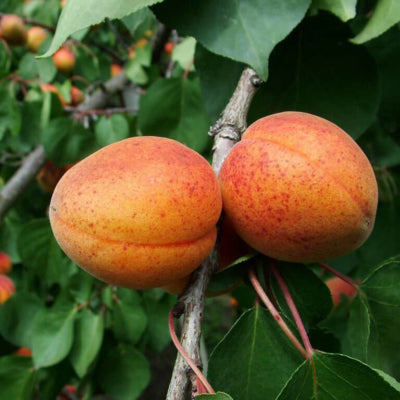
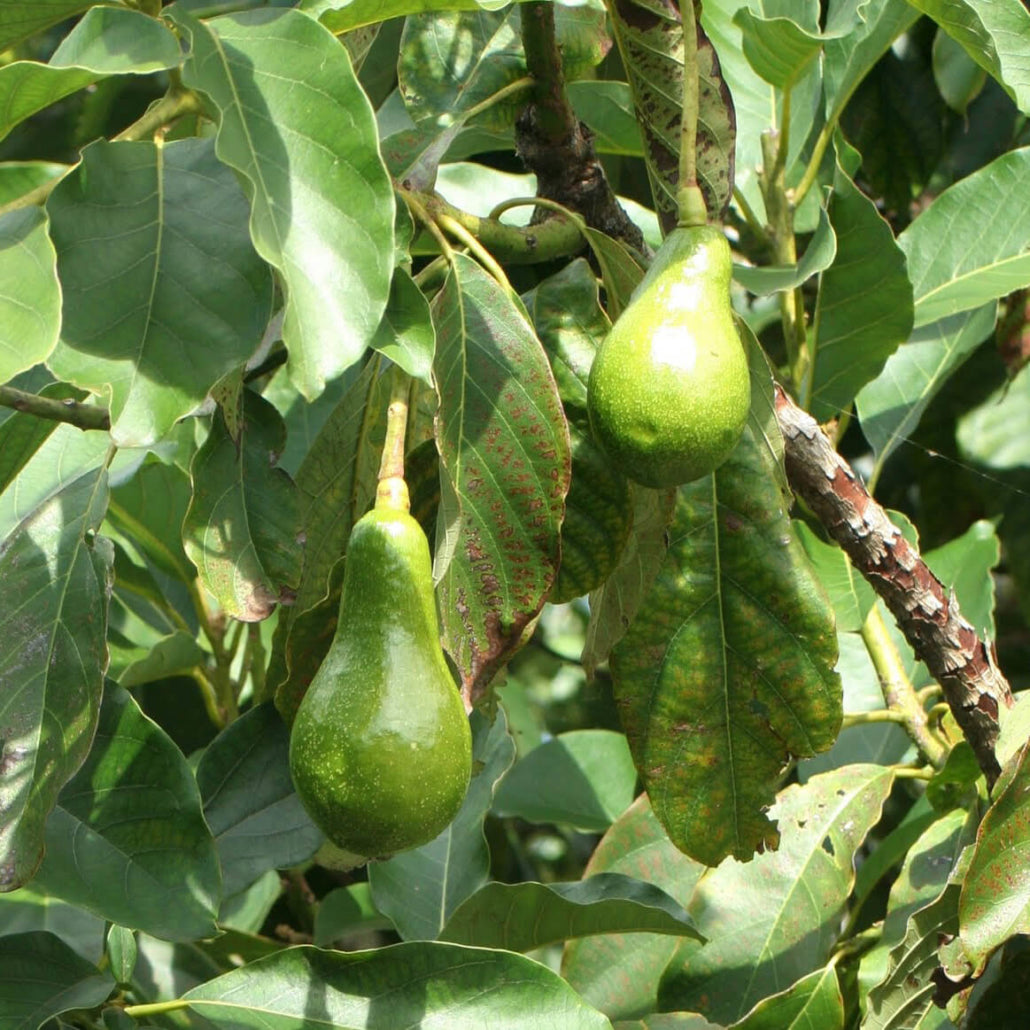
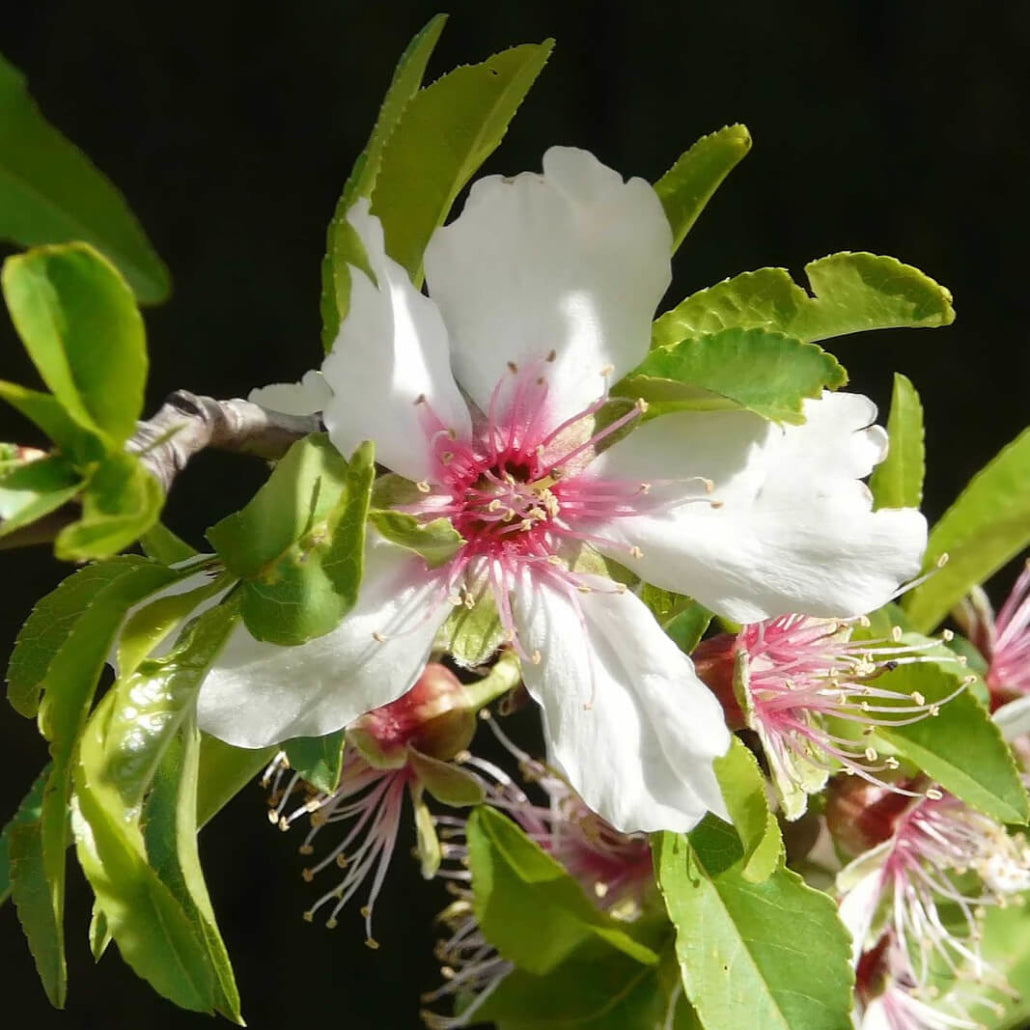
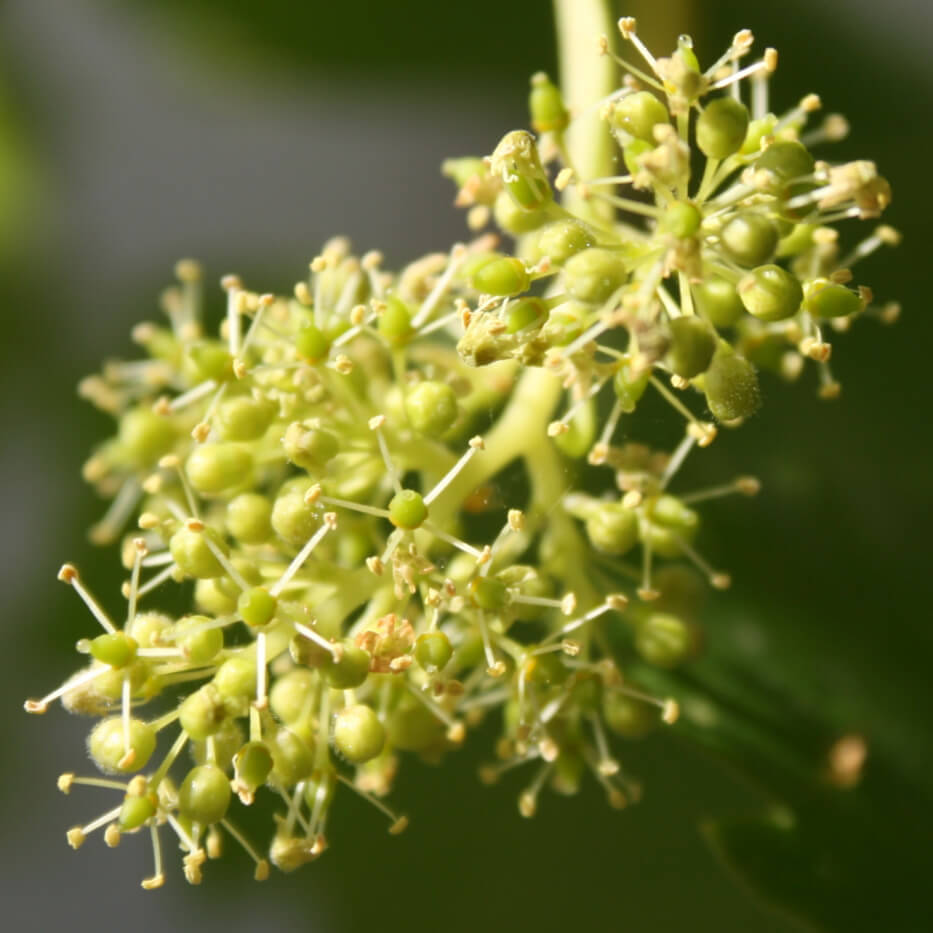
Avocado Carrier Oil (Persea Americana): This oil contains Vitamins A, B1, B2, D, E, and Beta carotene. It is classified as a monosaturated oil and is best suited for dry skin conditions in topical applications. A small amount of Avocado Oil is typically added to other carrier oils in order to enrich protein and vitamin content. It is used predominantly by manufacturers (particularly great in soaps, lotions and creams) and massage therapists. Found in Body Butters.
Blue Chamomile Essential Oil (Matricaria recutita): Blue Chamomile Essential Oil is anti-inflammatory, anti-bacterial, soothing for inflamed, red skin and skin irritations and is good for sensitive skin. It relieves sore muscles and bruising and has a soothing effect on the liver as well as the rest of the digestive system via absorption through the skin. Found in Distressed Skin Salve and Cream.
Camphor Essential Oil (Cinnamomum camphora): Camphor Essential Oil is used in the treatment of acne, inflammation, arthritis, muscular aches and pains, sprains and rheumatism. Found in Stimulating Muscular & Joint Salve.
Castor Carrier Oil (Ricinus communis): Castor Oil is one of the few oils that can be used as an emulsifying agent. It also acts as a protective barrier on your skin that will protect against harsh environmental conditions. It is used in massage therapy, aromatherapy, and in manufacturing (particularly as a conditioning agent in hair care products). It will remain on the surface of the skin, acting as a barrier. Found in Body Butters.
Eucalyptus Essential Oil (Eucalyptus globulus): Eucalyptus Essential Oil is an excellent healer of skin aliments like burns, blisters, wounds, insect bites, lice, and infections. It is also anti-inflammatory and analgesic towards muscles and joints. Found in Stimulating Muscular & Joint Salve.
Fractionated Coconut Carrier Oil (Cocs nucifera): This oil is liquid at room temperature. It differs from Regular Coconut Oil in that it is produced by heat rather than cold pressing. Many consider it to be very comparable to the characteristics of human skin. It is also used on oily skin as it will not clog pores. It can also be used as a treatment to condition dull or dry hair. It is used almost exclusively by cosmetic manufacturers. Found in Body Butters.
Grapeseed Carrier Oil (Vitis vinifera): Grapeseed Oil is very high in polyunsaturates, contains vitamins, minerals and proteins and has astringent qualities. It is one of the lightest carrier oils available, is emollient and non-allergenic, making it good for all skin types. Grapeseed Oil is easily absorbed and is light and good for oily, acne prone skin. Found in All Heal Salve, Arnica Salve, Diaper Rash Salve, Distressed Skin Salve and Distressed Skin Cream, Hemorrhoid Healer Salve, Wild Yam Salve, Face Creams.
Jasmine Essential Oil (Jasminum sambac): Jasmine is emollient, calming, fragrant and antiseptic. It is warming, uplifting and toning for hot, dry skin. For all skin types, it softens and soothes and increases skins’ elasticity, especially good for dry sensitive skin to oily irritated and sensitive skin. Found in Jasmine Face Cream and Jasmine Body Butter.
Jojoba Carrier Oil (Simmondsia chinensis): Jojoba is a favorite carrier oil. In actuality, it is a liquid wax. It closely resembles the sebum of the skin, and is rich in Vitamin E. This promotes a glowing complexion. The Clear variety of Jojoba has been put through a charcoal filter removing the color and odor. This ensures the benefits in manufacturing without the risk of odor or product decolorization. It is also important to note that Jojoba may go cloudy in cool temperatures. It will return to its clear state with warming. This is natural as Phospholipids (natural components of most vegetable oils) hydrate and precipitate out of suspension. The sediment is actually extremely high in beneficial Vitamin E. Jojoba Carrier Oil can be added to other carrier oils in order to extend shelf lives, and has become a common oil in the aromatherapy industries because of its excellent skin care properties. Jojoba creates a barrier but will leave a satiny finish. Found in Body Butters.
Lavender Essential Oil (Lavandula angustifolia): Lavender Essential Oil is a neutral oil meaning its effects on the skin are neither hot nor cold. This quality makes it the only essential oil which can be used neat or un-cut on the skin which is perfectly safe for children. It is potent, as an antiseptic and balancing. Lavender essential oil is used in extremes such as very dry or very oily skin. It is a mildly scented aromatic restorative that is soothing and deodorizing. Found in All Heal Salve, Hemorrhoid Healer Salve, Wild Yam Salve, Found in Lavender Face Cream and Lavender Body Butter.
Palmarosa Essential Oil (Cymbopogon martini): Palmarosa Essential Oil adds moisture to the skin and stimulates cell growth. It regulates sebum production so it is good for all skin types because of its balancing nature. Palmerosa Essential Oil is rejuvenating for the skin and softens existing wrinkles, is useful for acne, itchy and dehydrated skin and psoriasis. Found in Distressed Skin Salve and Cream.
Patchouli Essential Oil (Pogostemon cablin): Patchouli Essential Oil is very strong, toning and penetrating. It is a tissue regulator, anti-inflammatory and antiseptic. Patchouli essential oil is useful in treating wrinkles, allergic skin, acne, cracked, chapped skin, eczema and athlete’s foot. Found in Arnica Salve.
Peppermint Essential Oil (Mentha piperita): Peppermint Essential Oil is anti-spasmodic, a peripheral vasodilator and stimulant. It is a stimulating and cooling oil for acne, dermatitis and congested skin and its stimulating qualities increasing circulation, aiding skin, muscles and joints. Found in Stimulating Muscular & Joint Salve.
Rose Essential Oil (Rosa damascene): Rose is an incredible fragrance and is an important healing substance. It helps the skin retain its elasticity and is used to treat sensitive and mature skin as well as redness, dryness and broken capillaries. Rose Essential Oil is emollient, softening, toning and restorative. It is a powerful antiseptic. Found in Rose Face Cream and Rose Body Butter.
Rosemary Essential Oil (Rosemarinus officinalis): Rosemary Essential Oil is antiseptic, anti-inflammatory, anti-bacterial, emollient, astringent, a muscle relaxant, soothing agent, skin conditioner, disinfectant, stimulating, restorative and a circulatory tonic. Rosemary essential Oil strengthens blood vessels by decreasing capillary fragility and permeability, so useful in treating scalp conditions, rheumatism, arthritis, neuralgia, muscular injuries and wounds. Found in Distressed Skin Salve and Cream
Sea Buckthorn Berry Oil (Hippophae rhamnoides): Oil from the berries has been used to treat inflammatory-related ailments. It aids cell tissue, skin damage, burns and is wound healing. The oil is a skin protectant, is antiaging and shields skin from damage from ultraviolet rays. Found in Distressed Skin Salve and Cream.
Sunflower Seed Oil (Helianthus annuus): Sunflower Seed Oil is emollient, good for all skin types, high in Vitamin B and E and rich in minerals. Found in Stimulating Muscular & Joint Salve.
Tea Tree Essential Oil (Melaleuca alternifolia): Tea Tree Essential Oil is germicidal, anti-fungal, anti-viral, a pus solvent and tissue cleanser. Tea Tree is the “Finest antiseptic known to man”. It is safe, comparing favourably with most broad spectrum anti-bacterials, safe for children, skin maladies, it deodorizes and cleanses embedded dirt and debris. Found in All Heal Salve, Distressed Skin Salve and Cream, Stimulating Muscular & Joint Salve.
Vitamin E Oil: (Tocopherol): Vitamin E plays a crucial role in protecting skin cells and membranes from environmental damage. This protection extends to stopping damage to the skin from UV rays, pollutants and aging. Vitamin E provides deep mineralization for the skin whilst allowing the skin to breathe and function naturally. Vitamin E is a natural preservative that helps sustain the shelf life of products. Found in Diaper Rash Salve, Distressed Skin Salve and Cream, Wild Yam Salve.
